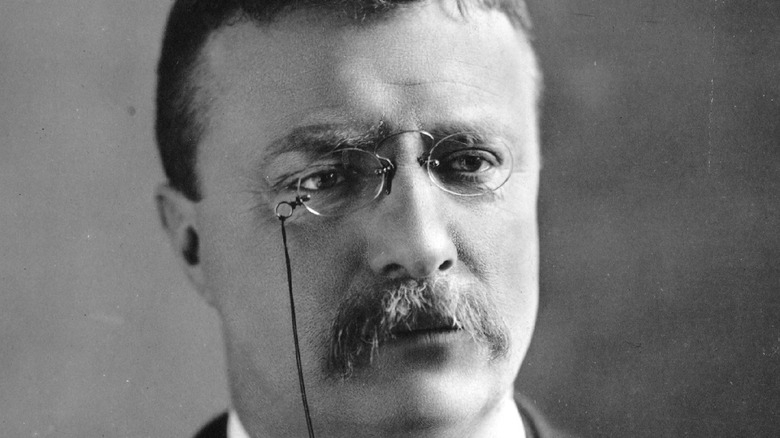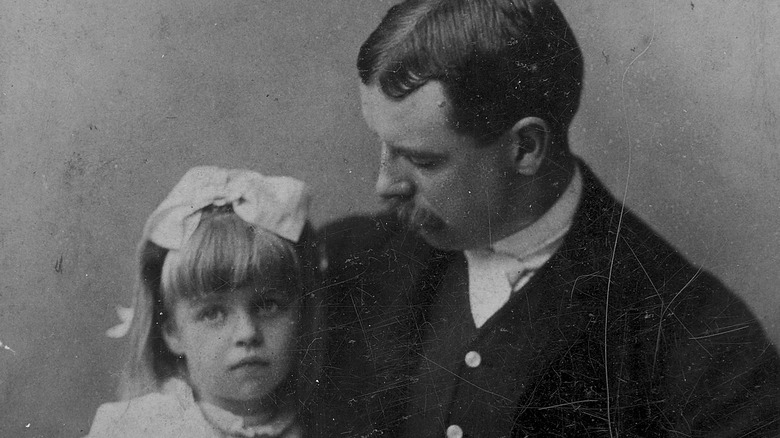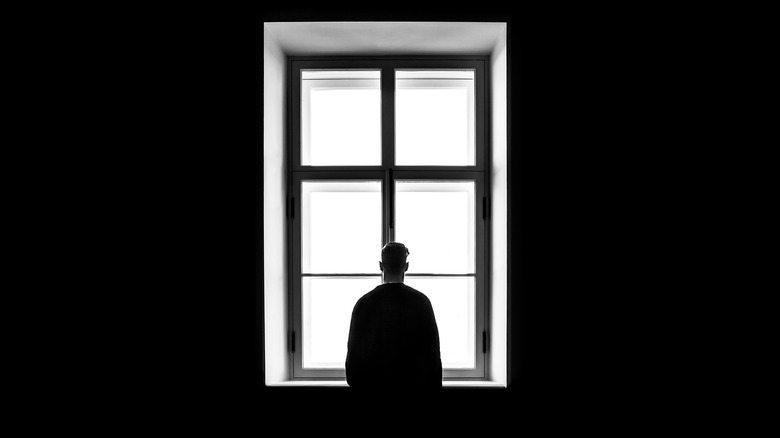Why Theodore Roosevelt Tried To Have His Own Brother Exiled
Theodore Roosevelt always wanted to be the president of the United States. However, in order to secure the position, he needed to make sure that no scandals would ruin his reputation and the Roosevelt name. Before he became president, there were troubles in the Roosevelt family that Theodore perceived as threats — one of them being his brother Elliott.
Elliott Roosevelt was born in 1860, two years after Theodore's birth. Elliott was the third of four children, with the two other siblings being girls. As children, the brothers had a competitive relationship, and according to NPS, Elliott was the one who excelled academically. As a child, Elliott suffered from frequent bouts of seizures and severe headaches, which continued on to his teens and adulthood. In their teens, Theodore set off to study at Harvard while Elliott headed to Texas to go on hunting expeditions.
According to Theodore Roosevelt Association, Elliott started drinking and had a heavy dependency on opiates after taking them for pain from an injury. Elliott eventually married Anna Hall in 1883 and had three children with her, the eldest being Eleanor Roosevelt, who would be a future first lady. Elliott's alcohol and drug dependency worsened as he got older, and the other three Roosevelt siblings were taking notice.
If you or anyone you know is struggling with addiction issues, help is available. Visit the Substance Abuse and Mental Health Services Administration website or contact SAMHSA's National Helpline at 1-800-662-HELP (4357).
Elliott Roosevelt's downward spiral
Theodore Roosevelt entered politics in 1881, having different positions in public office throughout the years. As he worked toward becoming the next president, he didn't want scandals to reach the public and ruin his chances. In 1890, Theodore wrote a letter to his sister, telling her that Elliott needed medical help (via Theodore Roosevelt Center). In the letter, Theodore wrote, "when he goes to a retreat he ought to be sent on some long trip, preferably by sea, with a doctor as companion."
In addition to being an alcoholic, Elliott also allegedly had an illegitimate child. In 1891, Theodore received a letter from a law office stating that his brother impregnated a chambermaid named Katy Mann, per History News Network. He consulted his lawyers and agreed to give Mann a sum of money in return for keeping the father of the illegitimate child a secret. In a letter to Elliott, Theodore said that he believes Mann was a "pure blackmailer" and the child was not his, but he nevertheless paid her in order to avoid a scandal (via Theodore Roosevelt Center).
Theodore was then exiled to Paris together with his family to avoid any further scandals from happening. While there, he was institutionalized in an asylum. After a year, according to the National First Ladies' Library, Theodore arranged to have Elliott admitted to the Keeley Center in Illinois for alcohol addiction treatment and was separated from his family.
Elliott Roosevelt's demise
Elliott's wife and children were sent back to New York while he was in treatment. Throughout the ordeal, Elliott's wife Anna never filed for divorce as she believed that Elliott would get better. In 1892, Anna died of diphtheria, a bacterial infection that she contracted after undergoing surgery for the constant headaches she was experiencing. Six months after Anna's death, Elliott's son, Elliott Jr., also died of diphtheria, as reported by Erenow. The tragic deaths of his family members reportedly pushed Elliott further, and he allegedly drank heavily to cope with the loss. His behavior became more erratic and his siblings no longer knew how to help him.
In 1894, Elliott Roosevelt attempted to kill himself by jumping off a window. He survived the fall, but suffered seizures afterward and died a few days later at the age of 34.
Theodore Roosevelt went on to become the 26th president of the United States in 1901.
If you or anyone you know is having suicidal thoughts, please call the National Suicide Prevention Lifeline at 1-800-273-TALK (8255).


